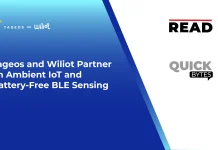BETA Technologies, is accelerating the development of autonomous capabilities to enable BETA aircraft to fly faster, further, and carry more to serve an increased scope of critical defense and commercial applications. In addition to years of internal autonomy system development, BETA is collaborating with Near Earth Autonomy (“Near Earth”) to support development and integration.
BETA’s simple and reliable electric and hybrid VTOL aircraft are designed with fly-by-wire (FBW) flight control technology, providing an ideal platform to enable both crewed and uncrewed operations. BETA has been developing and flying autonomous capabilities for the past several years, conducting more than 1,000 hours of uncrewed flights on a fleet of subscale aircraft with a demonstrated range of more than 158 nautical miles (182 statute miles) on a single charge. Near Earth adds expertise in perception, guidance, path planning and certifiable autonomous systems designed for a range of mission sets from its experience supplying autonomous systems with the U.S. military and industry OEMs.
BETA has successfully completed initial integration of the perception and guidance suite into the FBW flight control system with support from Near Earth. BETA anticipates flight testing will begin in the first half of 2026.
“Increasing our autonomy capabilities will deliver even greater optionality to operators, including faster speed, higher payload, longer range, and optional piloting,” said Shawn Hall, BETA’s Chief Revenue Officer. “In order to meet the demands of the defense and civil sectors today, mobility platforms must be smarter, more flexible, and ready to operate where traditional systems can’t. Recent announcements from the Department of Transportation and Department of War both point towards the accelerated fielding of autonomous aircraft. We are excited to be at the center of this effort with both civil and military customers.”
Also Read: Planet and Quantum Systems Partner on Satellite-Drone Defense Solution
BETA’s continued development of autonomous capabilities enables expansion of BETA’s offering to military customers and commercial cargo logistics customers such as UPS, Bristow, and e-Smart Logistics, among others.
“This collaboration builds on Near Earth’s proven work of bringing Responsive Uncrewed Capability (RUC) to helicopters, such as converting the UH-60L Black Hawk to RUC-60 enabling helicopters operations without onboard pilots. By leveraging the technology foundation, operational experience, and certification groundwork established through the RUC-60 program, we will help integrate advanced autonomy into ALIA to enable safe, efficient, and scalable operations across a wide range of missions,” said Sanjiv Singh, CEO of Near Earth Autonomy. “Partnering with BETA Technologies is a natural extension of our experience and expertise in bringing autonomy to a variety of missions and aircraft. Working with a pioneer in electric aviation allows us to combine high-assurance autonomy with cutting-edge electric propulsion to help unlock sustainable, scalable autonomous air mobility.”
BETA aircraft are optimized for range, payload, and high-cadence operations across defense, cargo and logistics, medical, and passenger applications. Engineered for all-weather performance, with IFR and FIKI capability on the near-term roadmap, BETA’s piloted aircraft can carry up to 1,240 pounds or five passengers and nearly double without a pilot. Over the past several years, BETA has conducted extensive real-world operations — with flights across the U.S., Europe, and New Zealand; participation in customer demonstrations and airshows; and completing joint military exercises with a 100% dispatch rate.
SOURCE: Businesswire




